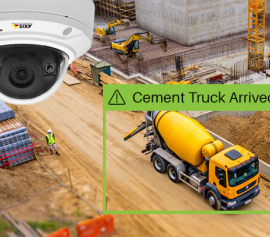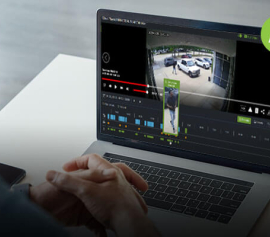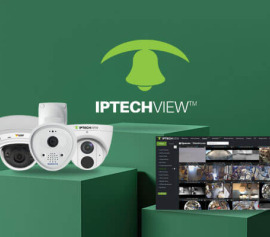What is NDAA Compliance? – Everything You Need to Know
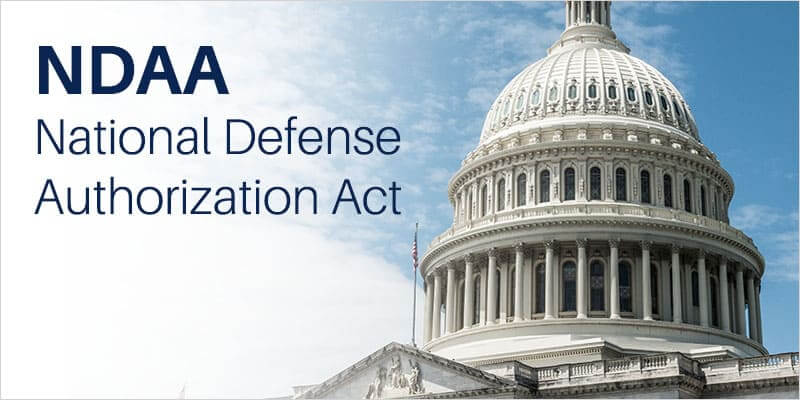
In 2019, the National Defense Authorization Act, short for NDAA, banned the buying or selling of products by many companies rooted in China. To clarify, it is an annual bill, a federal agency, or an organization.
Moreover, products containing parts from banned companies, even as OEM components, are subject to extreme scrutiny and restrictions under Section 889 compliance. In 2021, Congress passed a law specifically banning the import and sale of Hikvision and Dahua products. This ban took effect shortly after the president signed it into law.
IPTECHVIEW doesn't pick sides in political matters, but we want to share some important updates due to recent international events that might affect you. We'll explain what's happening and what it means for you. We've also included better alternatives.
What is an OEM?
OEM stands for Original Equipment Manufacturer. This term is typically used for companies that make parts for the sole reason of carrying out another company's products.
Hikvision could be an example if we wanted to discuss this topic at hand. It has a huge list of companies it produces OEM parts for. Products like security cameras are not banned under section 889 from the NDAA bill. The bill only restricts these products from federal use.
The thing is, even with the rules applied, these security cameras are a viable option for landowners worldwide. You can ask for a demo from IPTECHVIEW cameras that fit the NDAA Compliance.
Why Did the US Ban Them?
In the NDAA bill, the US government states that companies like Dahua and Hikvision pose an inherent risk to national security. The bill was passed after a series of events when there were clear-cut security breaches.

These events made the intelligence agencies and national security to become cautious of the high ground the Chinese government had to infiltrate the US through cybernetic espionage. Moreover, lawmakers see companies like Hikvision as a threat because they have partnered with the Chinese military to develop more advanced militaristic surveillance.
Similarly, lawmakers felt the need to put restrictions on Dahua and Huawei. Both of these companies have made almost identical commitments to their communist government. This has led Congress to limit contractors and government agencies to using only NDAA-compliant cameras.
What Does Section 889 Say?
Enacted in 2019 as part of the National Defense Authorization Act, Section 889 prohibits U.S. federal agencies, grant or loan recipients, and contractors from using equipment or products of companies that have been banned under it. This also prefigured the 2020 and 2021 lists of forbidden makers - prohibiting them from having any sales at all in our country.
What is the Secure Equipment Act?
As of 2021, the procedures formally conducted by the Federal Communications Commission (FCC) to review and approve products from producers, vendors, or institutions that are found on the NDAA Section 889 no-buy list are but history this month.
If a banned entity within the banned range has any product, then it can not receive FCC approval— you could technically say this means to legally sell such products in the US. In such a system, FCC approval is essential for any telecommunications or surveillance equipment on the US market, and outlawing any product blocks its importation.
How Do These Laws Affect You?
Federal agencies and contractors must immediately remove any products manufactured by Dahua, Hikvision, Huawei, or other banned companies, including those using these companies as OEMs, to comply with NDAA Section 889. If this step is not taken, federal contractors will no longer be eligible to do business with the U.S. government.
But what about regular users? The bill does not state any action that necessarily needs to be taken against home or business owners. Not at least in the immediate future. However, you should keep in mind that there will be less support for banned products by the US government just because of this bill.
Why NDAA-Approved Security Products are Important
NDAA-certified products are thoroughly scrutinized to make sure they do not have any drawbacks. By drawbacks we mean, any backdoors or vulnerabilities that face the risk of being exploited by foreign actors. What's more, knowing that your infrastructure is safe and secure lets you sleep at night peacefully.
A big perk is that NDAA-approved products help your business tackle all types of federal regulations. This effectively prevents any potential penalty and reputational damage. To sum it up, the benefits include:
- Enhanced Security
- Legal Compliance
- Future-Proofing
Partnering With IPTECHVIEW for NDAA-Compliant Surveillance
Making sure that your security infrastructure is safe and secure requires complex check-ups and expertise. At IPTECHVIEW, we specialize in designing and tailoring security systems that not only meet your unique needs but also adhere to the highest standard of compliance.
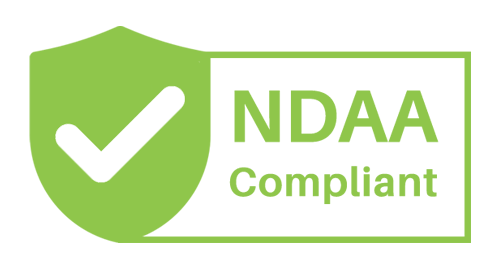
Our team will navigate you by:
- Assessing Your Current Security Set-up: We will help you identify non-compliant products and potential risks. Non-compliant equipment refers to products that don't meet required standards. This leads to risks like security breaches, operational failures, and safety hazards. Regular checks and updates are essential to avoid these issues.
- Recommending Approved Products: Our team is always studying the products that rule that market. We will help you choose the right products best suited to your needs.
- Designing a Custom Infrastructure: Our customers always look for quality over quantity. So, we are here to provide it. We will craft a meticulous security system for you that seamlessly fits into your operations.
- Providing Regular Support: Our guidance won't stop at just providing you with the right products. We will be actively keeping an eye on your system making sure it is functional.
Final Note
It is okay to not follow the hard line if you don't want to. But making sure your products are NDAA-compliant just adds that extra layer of security. Don't leave your business exposed to unwanted risks. Ensure your structure is robust and up-to-date.




